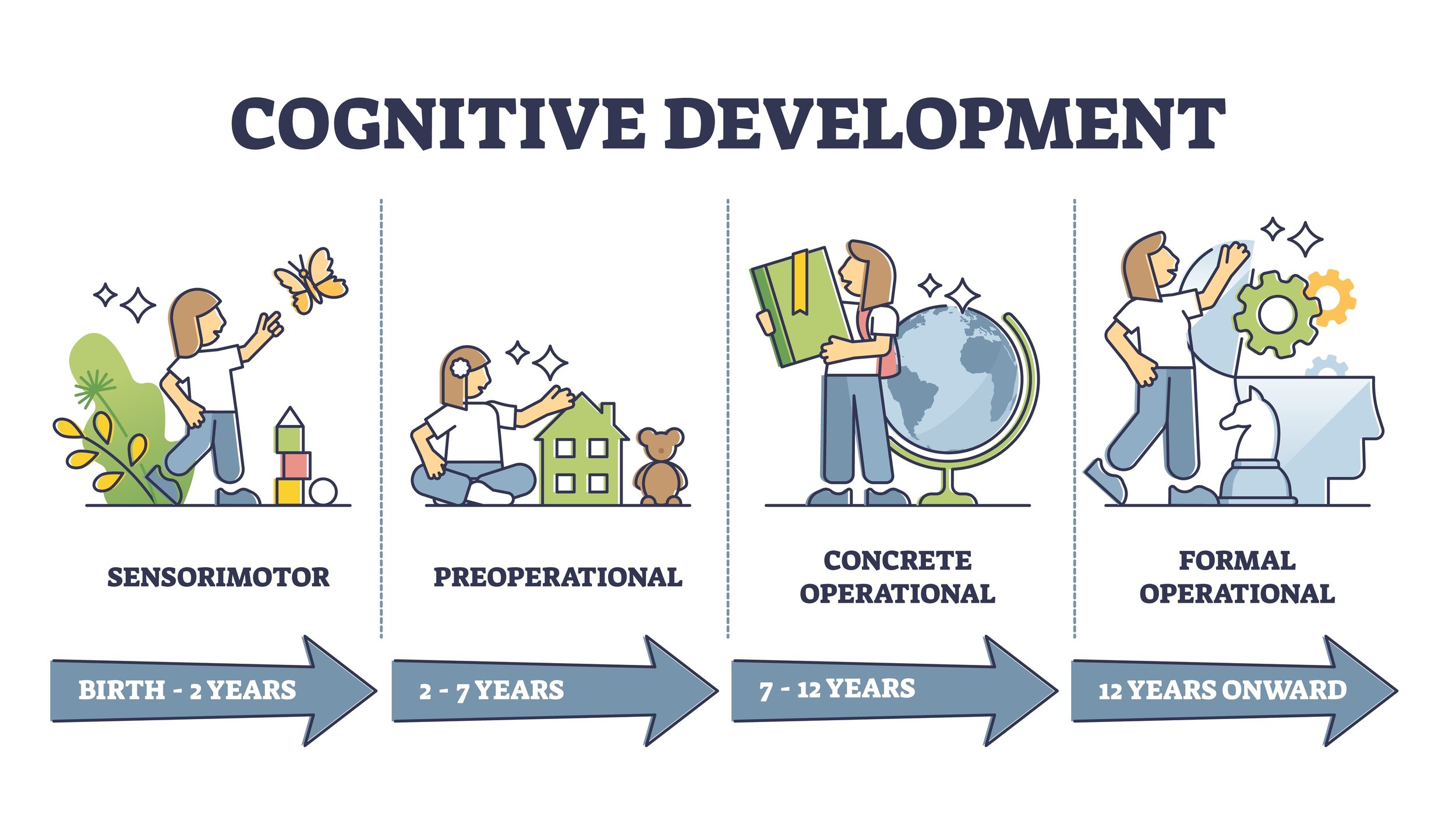Integrating Piaget's Principles into Your Personal Training Program
Jean Piaget's theory of cognitive development is one of the most influential frameworks for understanding how humans acquire and process information. While Piaget's work has been primarily focused on child development, his theory has important implications for adult learning and personal growth as well.
In this blog post, we will take a closer look at Piaget's theory and explore how it can inform personal training practices.
Piaget's theory proposes that children are active learners who construct their own understanding of the world through their experiences and interactions.
According to Piaget, cognitive development occurs in four distinct stages, with later stages building on earlier ones:
In the sensorimotor stage (birth to 2 years), children develop a sense of object permanence, meaning that they understand that objects still exist even when they can no longer be seen or heard. They also develop simple problem-solving skills and begin to coordinate their senses with their movements. For example, a baby may learn to reach for a toy that they see, or begin to understand that they can cause an effect by shaking a rattle.
During the preoperational stage (2 to 7 years), children develop symbols, such as words and images, to represent objects and events in their environment. They also begin to understand the concepts of time, space, and quantity. For example, a young child may use words to describe objects and events, or use their fingers to count objects.
In the concrete operational stage (7 to 12 years), children develop the ability to think logically and systematically, and they become capable of solving more complex problems. For example, a child in this stage may understand and use mathematical operations, such as addition and subtraction, or understand the concept of cause and effect.
In the formal operational stage (12 years and up), children develop abstract reasoning skills and are able to think logically and systematically about abstract concepts, such as ethical and moral principles. They are also able to think scientifically and evaluate evidence. For example, a teenager in this stage may be able to understand and debate complex political or philosophical ideas, or design experiments to test scientific theories.
While Piaget's theory was originally focused on child development, it has important implications for adult learning and personal growth as well. Piaget believed that cognitive development is a lifelong process that continues throughout life. This means that adults can continue to construct their understanding of the world through their experiences and interactions.
Personal trainers can use Piaget's theory to better understand their clients' mental and physical abilities, as well as their cognitive biases and limitations. This can help trainers design training programs that are appropriate for each individual's developmental level and support their ongoing cognitive growth and development.
Sensorimotor Stage Techniques:
Encourage clients to explore different movements and exercises using their senses.
Use visual aids such as pictures and videos to demonstrate different exercises.
Provide clients with feedback on their movements and encourage them to repeat exercises to develop muscle memory.
Preoperational Stage Techniques:
Use simple language to explain different exercises and techniques.
Encourage clients to use their imagination and creativity to come up with their own movements.
Use props and toys to make training sessions fun and engaging.
Provide clients with positive feedback to build their confidence and motivation.
Concrete Operational Stage Techniques:
Break down complex exercises into simpler steps and provide clients with guidance and support.
Encourage clients to think critically and solve problems related to their training.
Use visual aids such as diagrams and charts to help clients understand different muscle groups and how they are activated during exercises.
Provide clients with constructive feedback to help them improve their technique.
Formal Operational Stage Techniques:
Encourage clients to think abstractly and make connections between different exercises and techniques.
Provide clients with opportunities to experiment and test different training methods.
Encourage clients to set goals and develop a plan to achieve them.
Provide clients with detailed feedback to help them fine-tune their technique and achieve their goals.
These techniques can be adapted and tailored to meet the specific needs and goals of each individual client, and can support their ongoing cognitive growth and development.
Piaget's theory of cognitive development provides a valuable framework for understanding how individuals construct their own understanding of the world through their experiences and interactions. Personal trainers can use this framework to better support and foster cognitive development in individuals of all ages. By incorporating techniques based on Piaget's theory, trainers can help their clients build their cognitive abilities, improve their thinking skills, and achieve their personal fitness and wellness goals.

